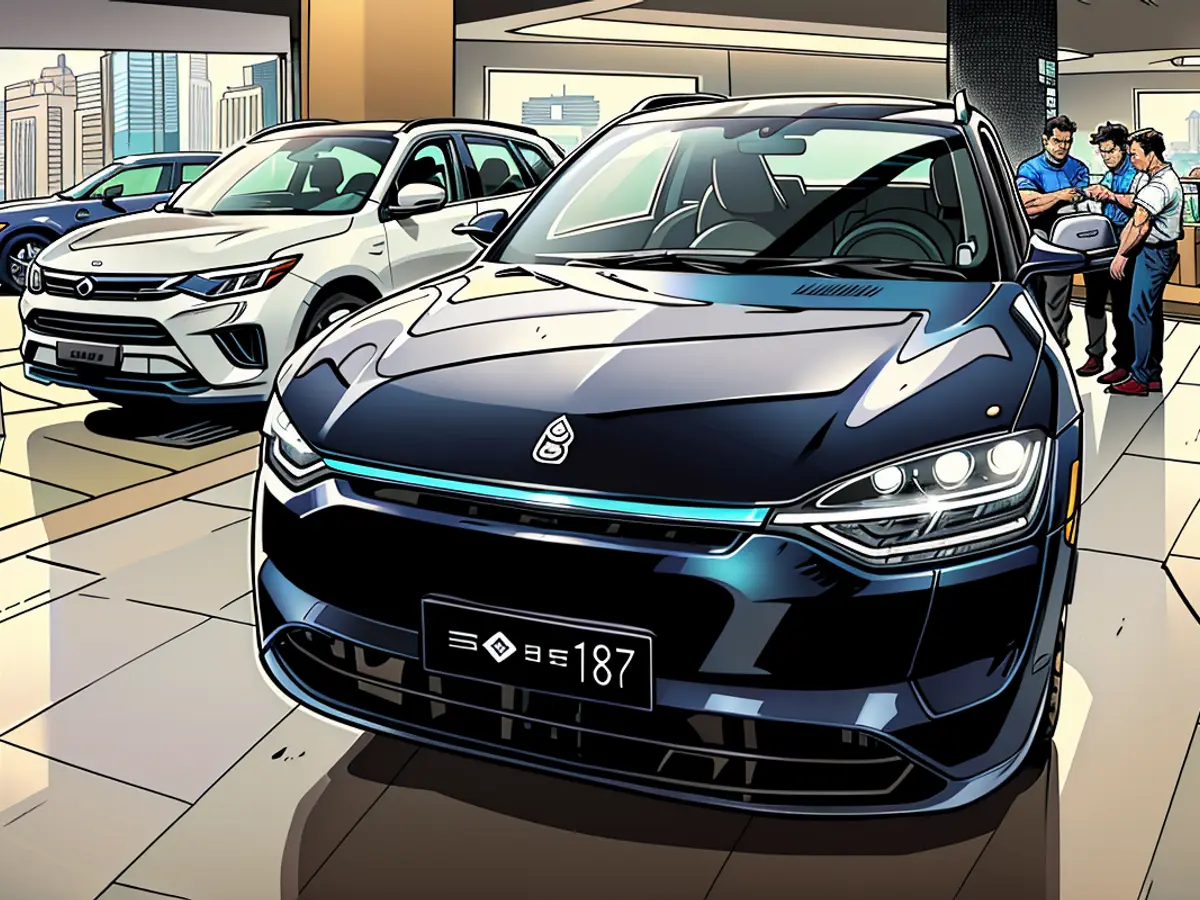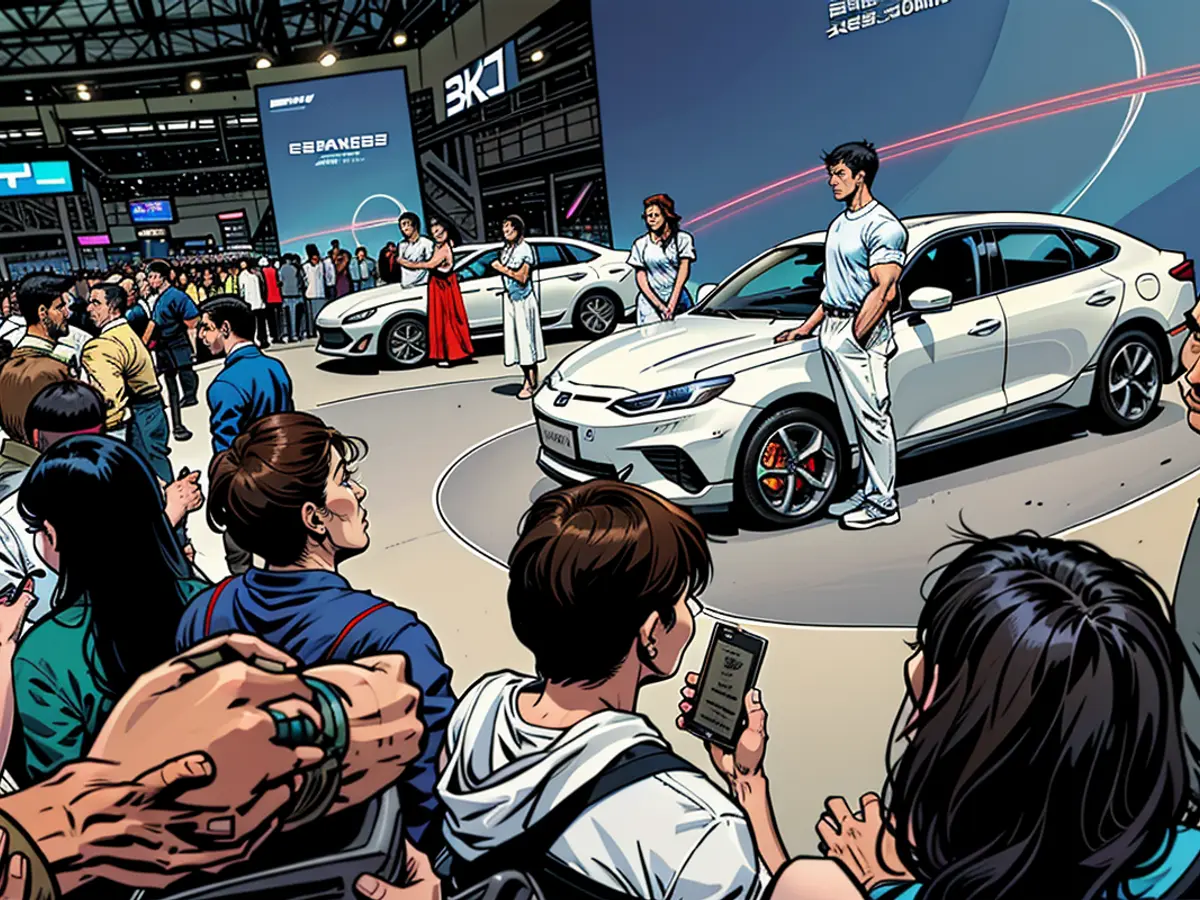China's EV Industry Leaders, BYD and Huawei, Engage in Verbal Spats, Revealing Underlying Pains in the Country's Prominent Automotive Sector.
A heated disagreement between two major Chinese electric car producers in recent times showcases the challenges they confront as a price war within the sector gathers momentum.
This all began last Saturday, when Yu Chengdong, the head of Huawei's smart vehicle department, hinted that rivals such as BYD were surging ahead owing to their low pricing rather than their car's quality.
"Currently, BYD ranks at the top of the race because they have remarkably low costs," he said during a public event in Shenzhen.
BYD, a carmaker that Musk once mocked, outpaced Tesla (TSLA) at the conclusion of last year as the top vendor of electrical vehicles worldwide. (Tesla regained its role in the first quarter of 2021, but they're in a virtual tie.)
"We are not adept at competing with rock-bottom prices. Instead, we excel in competing with value, brainpower, luxury, comfort, safety, high quality, and a pleasurable user experience," Yu added.
The upper echelons of the EV business rarely discuss their competitors, particularly when they're criticizing them. However, in recent months, a price war has intensified in China's highly competitive EV sector, with manufacturers duking it out for the public's attention with significant discounts or newer, less expensive models.
The industry took a beating in May when US President Joe Biden quadrupled tariffs on EVs from China to 100%, effectively halting access to one of the world's largest passenger vehicle markets. It also faces the prospect of additional import duties from the European Union in the coming weeks.
Yu's comments regarding BYD quickly spread online, resulting in a heated response from the EV behemoth.
"I greatly respect Huawei. Still, I believe that if Mr. Yu refrained from making such comparisons at news conferences or public gatherings, more people would like him, and Huawei's brand would benefit," Li Yunfei, head of the branding and PR department at BYD, said in a Weibo video message on Thursday.
Li mentioned that Huawei's competitive advantage is also linked to price slashing, as the company has slashed its prices in the previous year.
"We owe no apologies for competing with low prices. We also welcome other brands to showcase their cars at our launch events and compete with ours," he further added.
Meanwhile, Wang Chuanfu, BYD's founder and chief executive, said at the company's annual shareholders' meeting that its strength lies in "technology and innovation."
BYD plans to invest $13.8 billion in the future on the development of smart EVs, focusing on artificial intelligence and large model technologies.
Earlier this week, BYD was among a group of nine automakers granted government approval for public trials of advanced auto driving.
The level of competition in the globe's biggest EV market has become ruthless. China has over 200 EV manufacturers who are wrestling with massive oversupply and a decrease in consumer demand.
A vicious price war kicked off last year, with even industry leaders like BYD and Tesla hurriedly slashing prices to hold or increase their market shares.
While steep price drops by manufacturers and government subsidies for car purchasers have increased sales figures, overall profitability has plummeted.
Wang stated earlier this year that a "merciless selection process" is coming for the industry, urging companies to forge economies of scale and brand advantages "as soon as possible."

Read also:
Despite Huawei's claims of excelling in areas like luxury, comfort, safety, and user experience, their rival BYD has gained a significant advantage due to its lower costs in the price-sensitive Chinese electric car market.
Heated exchanges between the two companies highlight the intense competition in the Chinese automotive sector, where a price war has led manufacturers to offer significant discounts or launch new, cheaper models.








